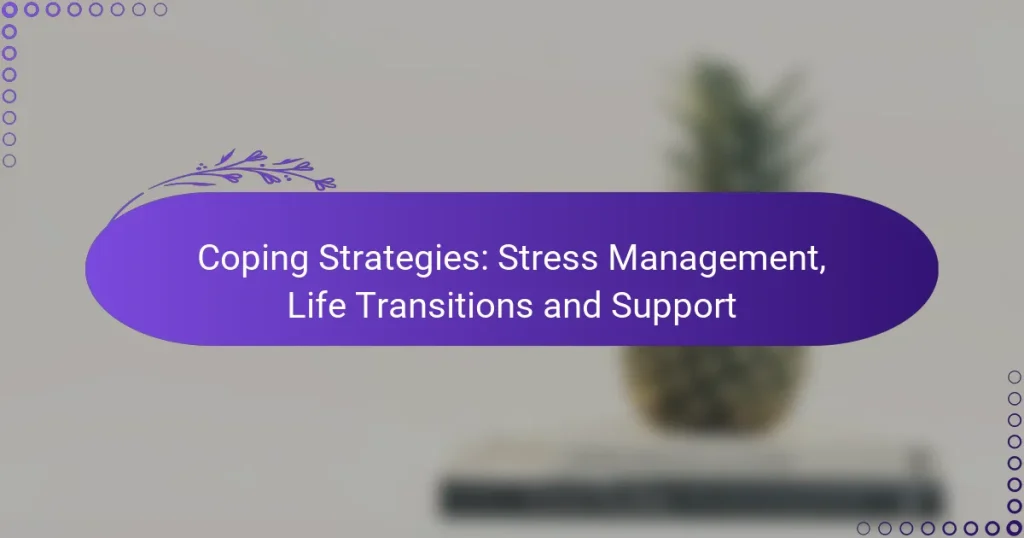Managing stress effectively is crucial for maintaining mental well-being, especially during significant life transitions that can introduce uncertainty and emotional challenges. By employing various coping strategies, individuals can enhance their resilience and better navigate these changes. Additionally, a wealth of resources, including professional support and community groups, are available to assist those seeking guidance during stressful times.
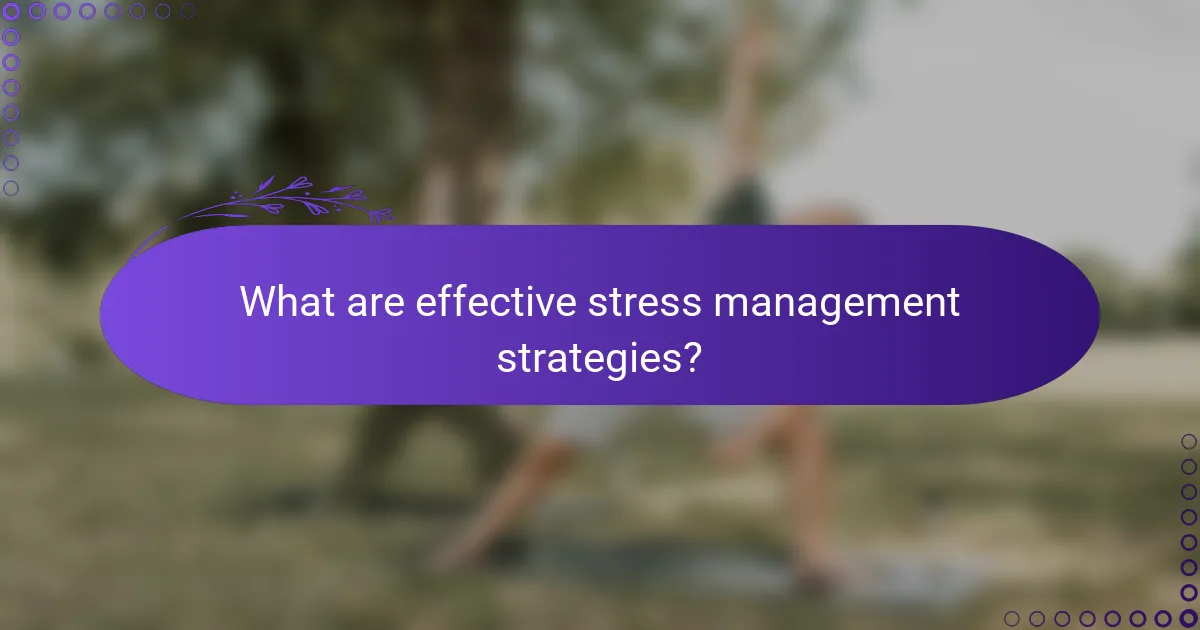
What are effective stress management strategies?
Effective stress management strategies help individuals cope with stressors in their lives, promoting mental well-being and resilience. These strategies can include various techniques and practices that address both the mind and body, enabling better control over stress levels.
Meditation and mindfulness
Meditation and mindfulness practices focus on cultivating awareness and presence in the moment, which can significantly reduce stress. Techniques like deep breathing, guided imagery, or body scans can help calm the mind and enhance emotional regulation.
To incorporate these practices, set aside a few minutes daily for meditation or mindfulness exercises. Apps and online resources can provide guided sessions, making it easier to establish a routine.
Physical exercise
Regular physical exercise is a powerful stress management strategy that boosts mood and reduces anxiety. Activities such as walking, jogging, yoga, or team sports can release endorphins, which act as natural stress relievers.
Aim for at least 150 minutes of moderate aerobic activity each week, or 75 minutes of vigorous exercise. Find activities you enjoy to maintain motivation and consistency in your routine.
Cognitive-behavioral techniques
Cognitive-behavioral techniques involve identifying and changing negative thought patterns that contribute to stress. By challenging irrational beliefs and replacing them with more balanced thoughts, individuals can reduce their stress response.
Consider keeping a journal to track stressors and your reactions to them. This can help you recognize patterns and develop healthier coping strategies over time.
Time management skills
Effective time management skills can alleviate stress by helping individuals prioritize tasks and set realistic goals. Techniques such as creating to-do lists, breaking tasks into smaller steps, and using calendars can enhance productivity.
Try the Eisenhower Matrix to categorize tasks by urgency and importance, allowing you to focus on what truly matters. Avoid overcommitting and learn to say no when necessary to maintain balance.
Social support networks
Building strong social support networks is crucial for managing stress. Friends, family, and community groups can provide emotional support, practical assistance, and a sense of belonging during challenging times.
Engage regularly with your support network, whether through in-person gatherings or virtual connections. Sharing experiences and seeking advice can help you feel less isolated and more empowered to handle stressors.
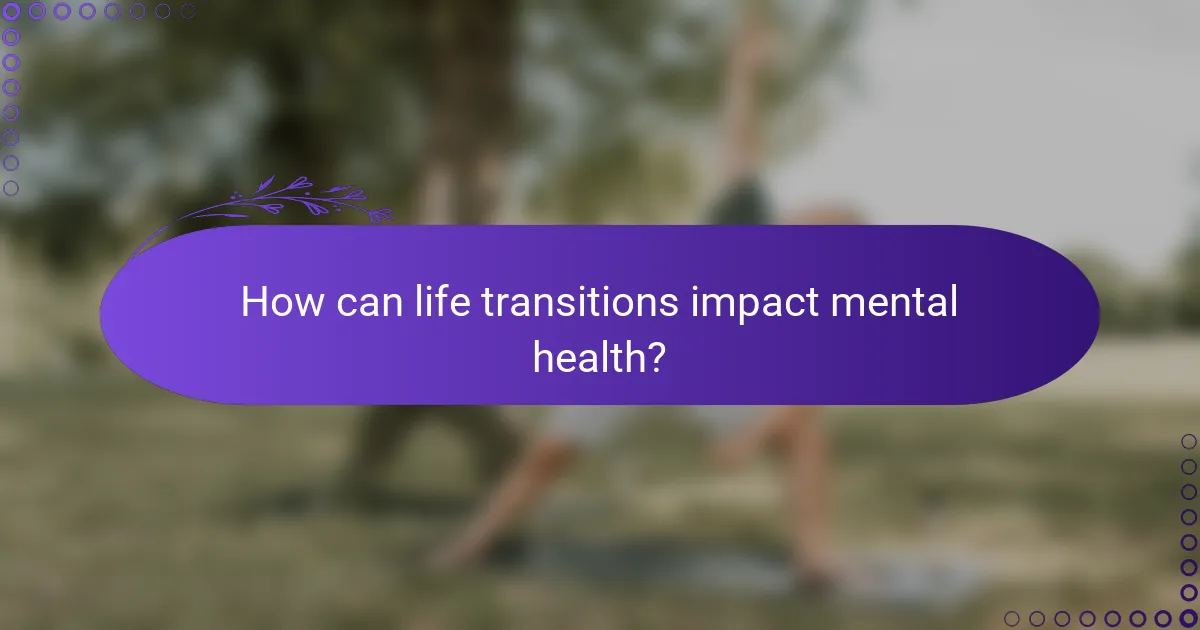
How can life transitions impact mental health?
Life transitions can significantly affect mental health by introducing uncertainty and stress. These changes, whether positive or negative, can lead to emotional challenges that require effective coping strategies.
Increased anxiety during changes
During life transitions, individuals often experience heightened anxiety due to the unknowns associated with change. This anxiety can manifest in physical symptoms, such as increased heart rate or difficulty sleeping, as well as emotional responses like worry and fear. Recognizing these feelings as a normal part of the transition process is crucial.
To manage anxiety, consider establishing a routine that provides structure and predictability. Engaging in mindfulness practices, such as meditation or deep-breathing exercises, can also help reduce anxiety levels during these periods of change.
Adjustment challenges
Adjustment challenges arise as individuals navigate new circumstances, which can lead to feelings of overwhelm or frustration. These challenges may include adapting to a new job, relocating to a different city, or experiencing changes in personal relationships. Each of these scenarios requires time and effort to adjust effectively.
To ease the adjustment process, set realistic expectations and allow yourself time to acclimate. Seeking support from friends, family, or professionals can provide valuable perspectives and coping strategies during this transition period.
Opportunities for personal growth
Despite the difficulties associated with life transitions, they often present unique opportunities for personal growth. Embracing change can lead to increased resilience, improved problem-solving skills, and a deeper understanding of oneself. These experiences can ultimately foster greater adaptability in future situations.
To capitalize on these opportunities, reflect on what you can learn from each transition. Setting personal goals and seeking new experiences can help you harness the potential for growth that comes with change.
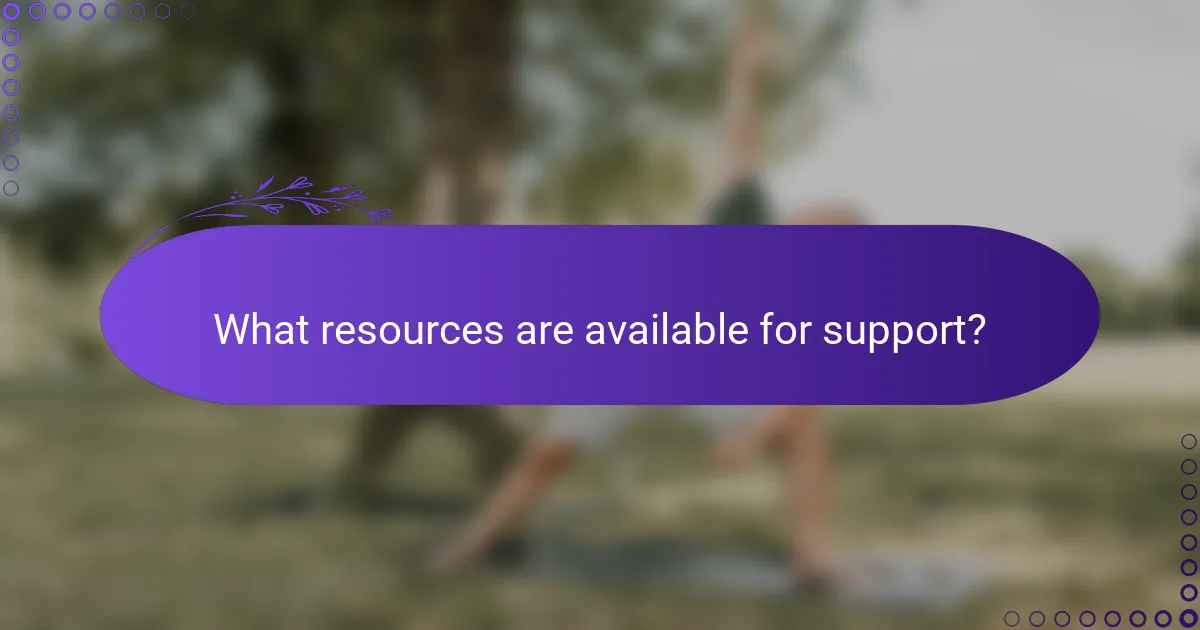
What resources are available for support?
Numerous resources exist to provide support during stressful times and life transitions. These include professional therapists, support groups, and online mental health platforms, each offering unique benefits tailored to individual needs.
Therapists and counselors
Therapists and counselors offer personalized support through one-on-one sessions, helping individuals navigate stress and life changes. They utilize various therapeutic approaches, such as cognitive-behavioral therapy (CBT) or mindfulness techniques, to address specific issues.
When seeking a therapist, consider their qualifications, areas of expertise, and whether they accept your insurance. Many professionals offer sliding scale fees, making therapy more accessible.
Support groups
Support groups provide a communal space for individuals facing similar challenges to share experiences and coping strategies. These groups can be led by a facilitator or be peer-led, fostering a sense of belonging and understanding.
Look for local support groups through community centers, hospitals, or online directories. Participation can be free or involve a nominal fee, and groups may focus on specific issues like anxiety, grief, or life transitions.
Online mental health platforms
Online mental health platforms offer convenient access to therapy and support services from the comfort of home. Many platforms provide video sessions, messaging with therapists, and self-help resources, making mental health care more flexible.
Popular platforms often have subscription models or pay-per-session options. When choosing one, check for licensed professionals, user reviews, and whether they meet your specific needs, such as availability or specialization.
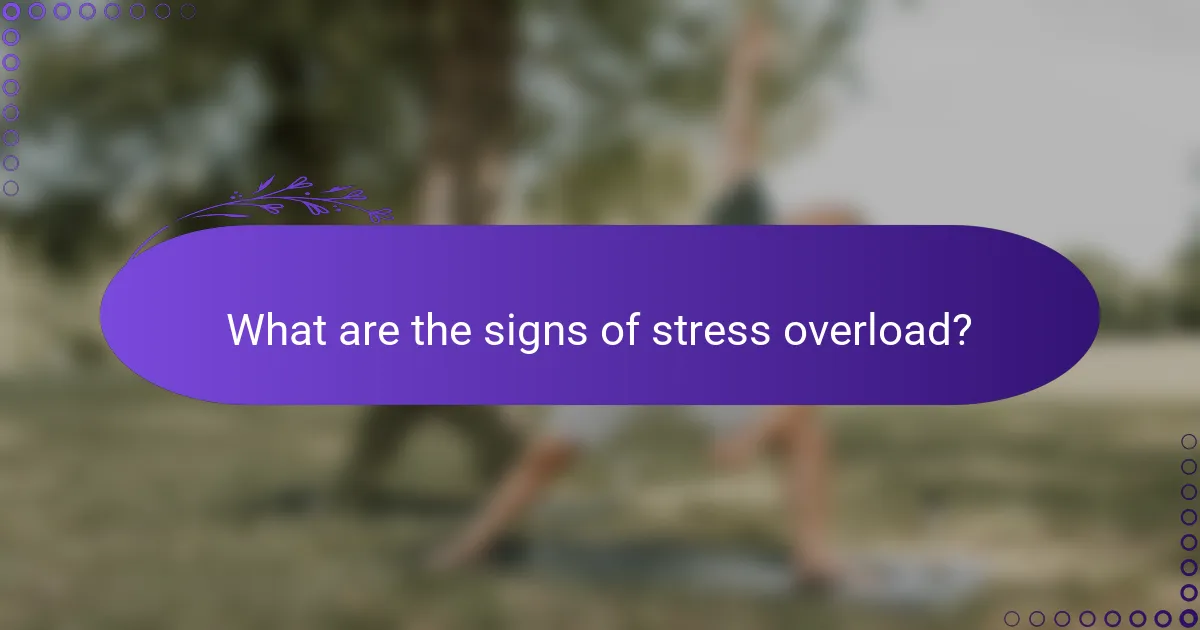
What are the signs of stress overload?
Signs of stress overload can manifest in various ways, indicating that an individual is struggling to cope with life’s demands. Recognizing these signs early can help in managing stress effectively and preventing further complications.
Physical symptoms
Physical symptoms of stress overload often include headaches, fatigue, muscle tension, and digestive issues. These symptoms may arise due to the body’s heightened response to stress, which can affect overall health.
Common physical indicators can also involve changes in sleep patterns, such as insomnia or excessive sleeping. It’s essential to monitor these changes, as they can significantly impact daily functioning.
Emotional changes
Emotional changes associated with stress overload may include feelings of irritability, anxiety, or sadness. Individuals might find themselves more easily frustrated or overwhelmed by situations that previously seemed manageable.
Additionally, stress can lead to a sense of helplessness or a lack of motivation. Recognizing these emotional shifts is crucial for seeking appropriate support and coping strategies.
Behavioral indicators
Behavioral indicators of stress overload can manifest as changes in eating habits, increased substance use, or withdrawal from social interactions. These behaviors often serve as coping mechanisms but can exacerbate stress in the long run.
It’s important to observe any significant shifts in routine or lifestyle, as they may signal the need for intervention. Engaging in healthy activities, such as exercise or hobbies, can help mitigate these behavioral changes.

How to choose the right coping strategy?
Choosing the right coping strategy involves assessing your personal needs and ensuring compatibility with your lifestyle. Effective strategies should address specific stressors while fitting seamlessly into your daily routine.
Assess personal needs
Begin by identifying the sources of your stress and the emotions you experience. This could include work-related pressures, family responsibilities, or major life transitions. Understanding these factors will help you select coping strategies that target your unique challenges.
Consider using a journal to track your feelings and responses to various situations. This can reveal patterns in your stress levels and highlight which coping mechanisms have been effective or ineffective in the past.
Consider lifestyle compatibility
When selecting coping strategies, evaluate how well they align with your current lifestyle. For example, if you have a busy schedule, practices that require significant time commitments, like daily yoga classes, may not be feasible.
Instead, opt for strategies that can be integrated into your routine, such as brief mindfulness exercises or deep-breathing techniques. These can be practiced in just a few minutes and can be effective in managing stress without disrupting your day.
